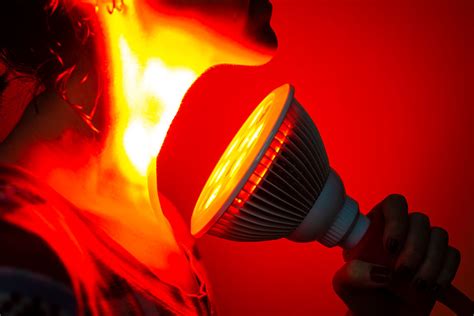WASHINGTON, DC — (Pinkston News Service)
While there is currently no known cure for dementia, according to world renowned UV light expert Fred Maxik, light’s powerful properties, and in particular infrared light, could in the near future be utilized to help address this life altering condition. In 2011, Maxik became a White House Champion of Change award recipient for his work with NASA to create products to help champion human health, first in space and now on Earth. He is the founder and Chief Scientific Officer for the lighting solutions company Healthe (healtheinc.com).


Dementia is often characterized by a loss of memory and trouble with communicating, reasoning and judgment. Alzheimer’s disease (AD), the most common dementia diagnosis among older adults, is the 6th leading cause of death in the United States according to the Centers for Disease Control and Prevention (CDC).
Maxik, the holder of more than 400 combined U.S. and international patents, said he is “fascinated” by the tremendous potential for light to address dementia because of its ability to increase blood flow throughout the body. He made the comments on a recent episode of the Coffee with Closers podcast.
“A number of light wavelengths penetrate the body near completely when we go to far reds, infrared, far infrareds. These are wavelengths of light that will create vasodilation [dilation of blood vessels] in the body. These may be potential cures in the future for things like dementia, and there’s good reason to look at these because when we see vasodilation, we see blood flow increasing. You can imagine healing vitreous matter clearing in other areas of the body. I think these are fascinating topics there within this next decade. They will be explored, I think quite thoroughly, and I think we’ll see a lot of changes to light in the future,” said Maxik.
Maxik helped to develop circadian lighting systems that are currently being used on the International Space Station to help regulate astronauts’ body clocks and support their mental and physical health.
A recent pilot study, co-led by Dr. Paul Chazot of Durham University in the United Kingdom, found that the use of an infrared emitting light helmet “improved memory, processing skills, and motor function” in the study’s participants.
“We’ve shown what appears to be real improvements in memory and other neurological processes for healthy people when their brains are exposed to a specific wavelength of infrared light for consistent, short periods of time. While this is a pilot study and more research is needed, there are promising indications that therapy involving infrared light might also be beneficial for people living with dementia and this is worth exploring,” said Dr. Chazot.
While the U.S. Food and Drug Administration (FDA) has approved some drugs to manage Alzheimer’s symptoms, a cure for the disease has been elusive ever since German neurologist Alois Alzheimer first identified the illness back in 1906. Other researchers seem to be taking some promising steps forward as well.
A new study out of Osaka City University in Japan finds that a nasal spray combining an antibiotic and a plant antioxidant may reverse dementia symptoms. And a recent Cleveland Clinic-led study found that the erectile dysfunction remedy Viagra might have the potential to treat Alzheimer’s in the future, although some researchers “cautioned against drawing strong conclusions” at this point until further studies are done.
According to the Alzheimer’s Association, more than 6 million Americans are living with Alzheimer’s disease, a number that is projected to more than double to 13 million by 2050. Healthcare costs related to its treatment was estimated at $305 billion in 2020. The Alzheimer’s Association also reports that Alzheimer’s and dementia deaths increased 16% during the COVID-19 pandemic.
Source: https://pinkstonnews.com
Get Citizensjournal.us Headlines free SUBSCRIPTION. Keep us publishing – DONATE



